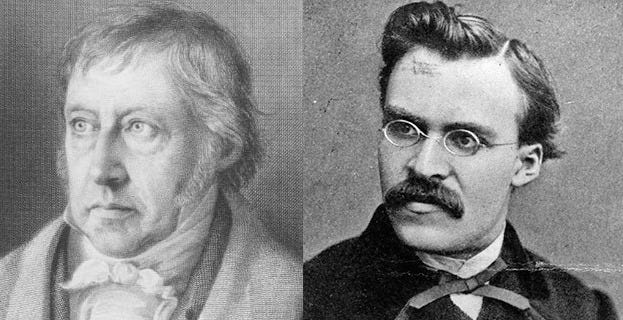NIETZSCHE borrowed from a number of earlier philosophers, but it recently occurred to me that in terms of being misunderstood on the question of death one could be forgiven for thinking that both he and Hegel were part of some kind of eternal recurrence in which the same man was destined to be misconstrued on this matter over and over and over again. Indeed, not only is Nietzsche's idea about the death of God commonly misrepresented in terms of the erroneous suggestion that he was somehow celebrating the Enlightenment destruction of spirituality rather than merely highlighting the increasing scientific rationalism of a century in which it had become impossible to apply any meaningful system of moral values, but Hegel's own alleged thoughts on the ‘death’ of art have also been widely misinterpreted.
In 1828, or so it is claimed, he declared that art had been swept aside as a result of being unable to reach the aesthetic heights of the classical and medieval periods. However, whilst Hegel never actually made reference to the ‘death’ of art and merely spoke of it as something that has since been surpassed by philosophy, it is curious that he shares this translational injustice with his moustachioed counterpart and one wonders if the nineteenth century didn't have its own share of linguistic shock-jocks and exaggeratory sound bites in the way that the mass media takes things out of context today.





I like the way you find gems in writers whose work contains muddy nonsense, and unbelievable arrogance at times. Raymond Williams whatever his faults, and there were quite a few, surprised me in Culture and Society, was able to appreciate the value in writers like Burke and others despite their distance from him politicallly.
It is like finding diamonds in the dust at times. I haven't read much of Williams, although I know he was an early critic of neoliberalism. What you say about his approach sounds very encouraging.